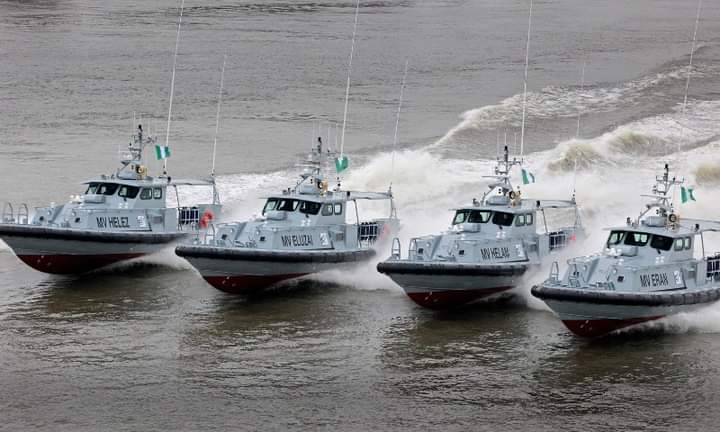The Delta State Government says it plans to use its rivers and coastal areas to create a strong and fair “blue economy” — an economy based on water resources that supports both people and the environment.
Mr. Charles Aniagwu, the Commissioner for Works (Rural and Public Information), explained this plan during a joint press briefing in Asaba.
The briefing included other government officials and members of the Senior Executive Course 47 from the National Institute for Policy and Strategic Studies (NIPSS), led by retired Deputy Inspector General Adeleye Oyebade.
The theme of the event was: “Blue Economy and Sustainable Development in Nigeria: Issues, Challenges, and Opportunities.”
Aniagwu said Delta State is leading efforts to use its rivers and coastline to support economic growth, protect the environment, and ensure everyone benefits.
He was joined by other commissioners, including those for Transport, Environment, and Oil and Gas, as they explained the state’s plan.
Aniagwu said Delta has over 500 kilometers of waterways and an Atlantic coastline that are valuable but not yet fully used.
He said Governor Sheriff Oborevwori’s government is focused on investing in different sectors to help river and rural communities grow economically.
Aniagwu explained that the blue economy is not just about fishing and tourism. It also includes fighting poverty, building strong communities, and preparing for climate change.
He said the state’s plan connects rural roads, jetties, cold storage, and internet access as key tools to open up new water-based opportunities.
He shared some ongoing projects such as building roads in areas like Warri North and Bomadi, including the Ogheye Floating Market and the Trans-Warri-Ode Itsekiri Road, which has 15 bridges.
Other important projects include building the Ayakoromo Bridge and paving roads in Warri South-West, which will help connect remote villages to bigger markets.
Delta is also upgrading jetties and improving water transport systems to make travel safer and more eco-friendly for people who live in river communities.
Aniagwu said the government is not just building things, but also helping people — especially women and youth — by training them in fishing, tourism, logistics, and marine jobs.
He added that Delta is helping small businesses grow by supporting cooperatives, improving internet access, and using solar power for cold storage of fish and other goods.
Aniagwu said the state’s goals are part of Governor Oborevwori’s M.O.R.E Agenda, which stands for: Meaningful development, Opportunities for all, Realistic reforms, and Enhanced peace and security.
He said these plans will bring major benefits: more trade, lower transport costs, more jobs, and private investment in rural areas.
Socially, the projects will help local communities feel more included, increase women’s involvement in trade, and preserve traditional knowledge.
Environmentally, the use of clean energy, mangrove protection, and responsible resource use will help protect nature and make communities stronger.
Aniagwu called for national cooperation and suggested that Delta State be chosen as a pilot area, starting in 2026, to test blue economy strategies.
He asked the federal government to support cleaner transport, river dredging, and improved cold storage systems.
He also suggested creating a special taskforce to coordinate water economy and transport efforts between federal and state governments.
He said Delta State is ready to work with the federal government, development partners, and private investors to turn its water resources into long-term benefits.
“Our waterways should create jobs, wealth, and protect the environment — not hold us back,” Aniagwu said.
He added that with careful planning, fair policies, and smart investments, Delta can become a model for water-based development in Nigeria.
Mr. Oyebade, the leader of the NIPSS team, praised Delta for creating the Ogheye Floating Market and encouraged the state to keep attracting investors using its Atlantic coastline.


